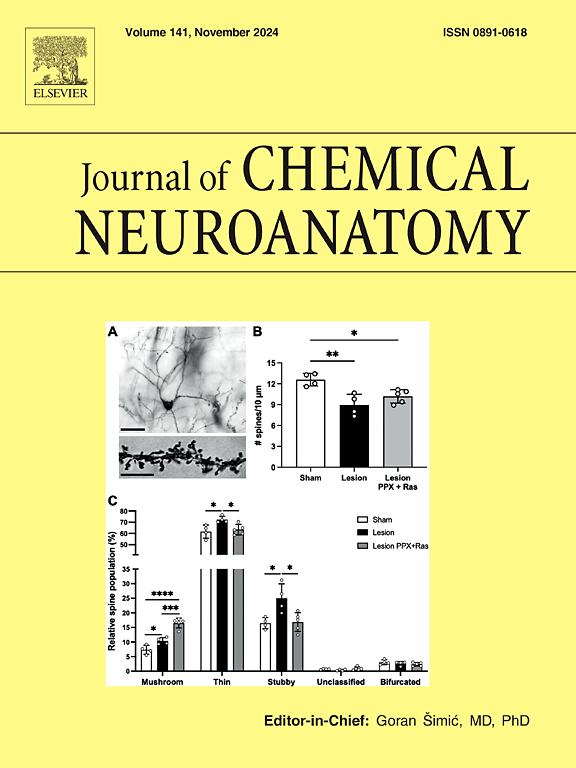Isoflurane-induced reduction in neurogenesis derived from the tertiary dentate matrix
Abstract
Anesthetics-induced disruption of dentate neurogenesis in the young brain is strongly suggested to contribute to delayed neurocognitive deficit. In postnatal rodents, the neurogenesis of the dentate gyrus (DG) is sequentially derived from the secondary dentate matrix, tertiary dentate matrix and subgranular zone (SGZ). However, the effects of anesthetics on the dentate neurogenesis derived from specific sites are poorly understood. To trace the new cells generated from the postnatal secondary dentate matrix, peak stage of the tertiary dentate matrix and early stage of the SGZ after isoflurane exposure, mice at postnatal day 1 (P1), P7 and P31 were injected with BrdU at 12 h before the exposure. We found that isoflurane exposure significantly reduced the numbers of proliferating cells (1 day old), immature granule cells (21 days old) or mature granule cells (42 days old) derived from the peak stage of the tertiary dentate matrix and postnatal secondary dentate matrix, but not from the SGZ. Quantitative assessment of BrdU-/BrdU+NeuN-positive cells and cleaved caspase-3 level in the DG indicated that the reduction was correlated with cell loss rather than neuronal differentiation. Mechanistically, we demonstrated that the PI3K/Akt/GSK-3β pathway enriched by mRNA-sequencing is a requirement for the isoflurane-induced loss of 1-day-old proliferating cells generated from the tertiary dentate matrix. In addition, this study demonstrated that P1 and P7 mice, but not P31 mice exposure to isoflurane resulted in subsequent deficits in performance of the tasks of the Morris Water Maze.

 求助内容:
求助内容: 应助结果提醒方式:
应助结果提醒方式:


